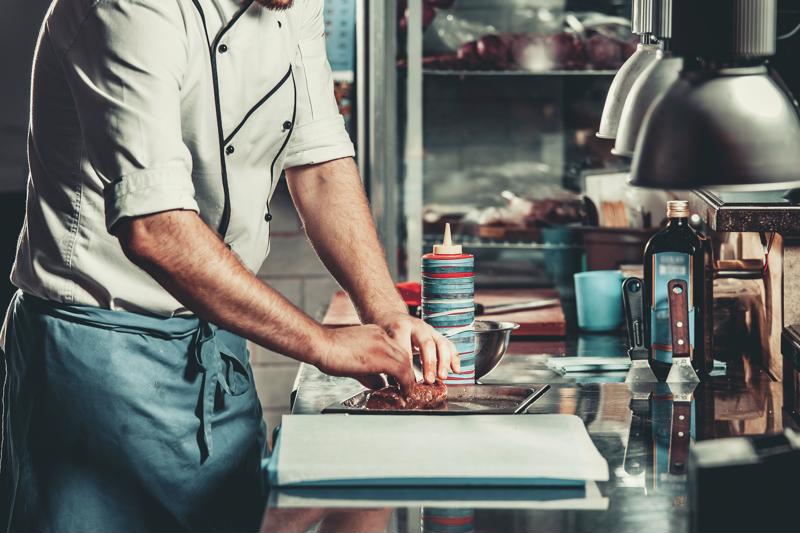For some restaurants, the concept of “zero waste” is a cause. In Boulder, Colorado, it’s the law.
In 2015, the Boulder City Council adopted universal zero waste requirements. These extend to businesses as well as private citizens. Restaurant owners, for instance, must separate compostable waste and recyclables from trash and train employees on proper sorting. The goal, according to the City of Boulder, is to generate new materials from 85% of waste by 2025.
As Boulder culinary school students might already know, Zero Waste Boulder coincides nicely with a trend that’s sweeping the food industry: zero-waste cooking. The goal of zero-waste cooking is to minimize the amount of waste in the first place through strategic menu building that allows food scraps to be reused and incorporated into new dishes. Paired with the city-wide zero-waste effort, zero-waste cooking can greatly boost sustainability initiatives.
Now more than ever, students at the Auguste Escoffier School of Culinary Arts campus in Boulder should pay attention to these sustainable restaurants – especially if they have their post-degree sights set on the local market.
Building a zero-waste menu
There are plenty of ways to minimize food waste by reusing certain scraps in other dishes or restaurant functions – many of which we covered in an earlier blog post. A few quick examples include:
- Using vegetable scraps and animal bones in stocks.
- Turning beet greens and carrot tops into pesto.
- Saving bread ends and turning them into bread crumbs.
- Sorting out your “ugly produce” to grind up in sauces and use in salads.
- Selling sourdough ends at the local farmer’s market.
- Using coffee grounds as fertilizer for plants on the premises.
 For some restaurants, the concept of “zero waste” is a cause. In Boulder, Colorado, it’s the law.
For some restaurants, the concept of “zero waste” is a cause. In Boulder, Colorado, it’s the law.The hard part, however, is actually crafting a menu that is conducive to zero-waste cooking based on the type of food you serve, and the most popular dishes at your restaurant. It takes patience, a whole lot of thought and a good amount of trial and error.
For starters, keep a waste journal and update it as frequently as you would a manifest of your inventory. Document everything you throw away currently, and begin creating culinary sketches for how you can reuse that waste, or alternatively, re-craft the recipe to use waste from another menu item. Think of it as a very complex equation that you’re trying to balance. Be resourceful in a pinch. For instance, if you wind up with a surplus of ingredients that you can’t really work into existing menu items, build that week’s specials around it.
If you need inspiration, check out the wastED online scrapbook. This community of food-industry folks dedicated to making the most of food waste and has no shortage of interesting takes on zero waste.
Otherwise, donate your leftovers and compost whatever you can’t use.
Don’t forget about equipment recycling
With all the focus on saving food, it’s easy to forget about all the culinary equipment restaurants burn through. For example, the Environmental Protection Agency estimates that Americans throw out about 9 million refrigerators and freezers every year. From old tableware to pots and pans, cutting boards and even larger appliances, try to donate anything that is still usable to thrift shops and charities.
Ultimately, sustainability takes a little more time and effort, but it’s worth it. For one, you get the satisfaction of knowing you’re helping the planet. However, you also get a huge marketing boost. According to research from Nielsen, 73% of millennials – the largest generation of living adults – are willing to pay more money for sustainable products.
If that’s not reason enough, just remember: In Boulder, zero waste is the law of the land. Fortunately for culinary students at our Boulder campus, sustainable restaurant practices are part of the curriculum.




